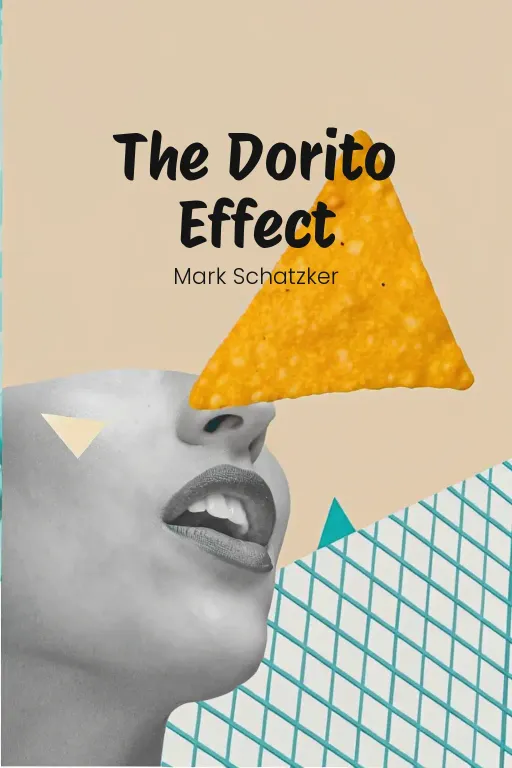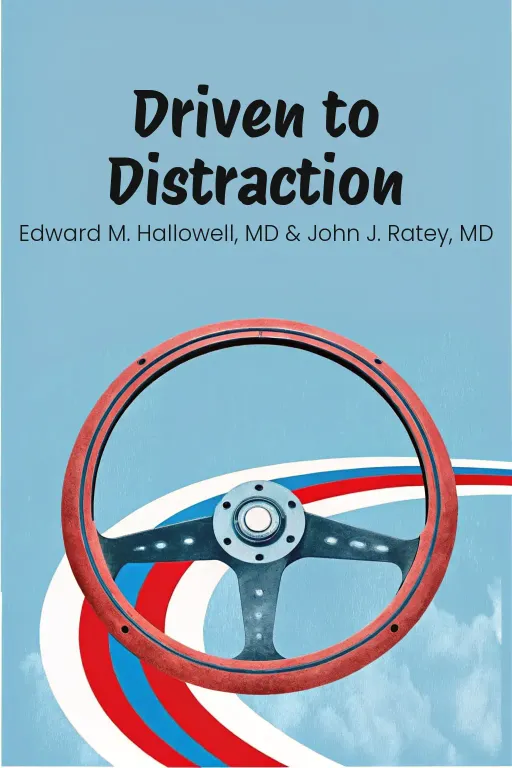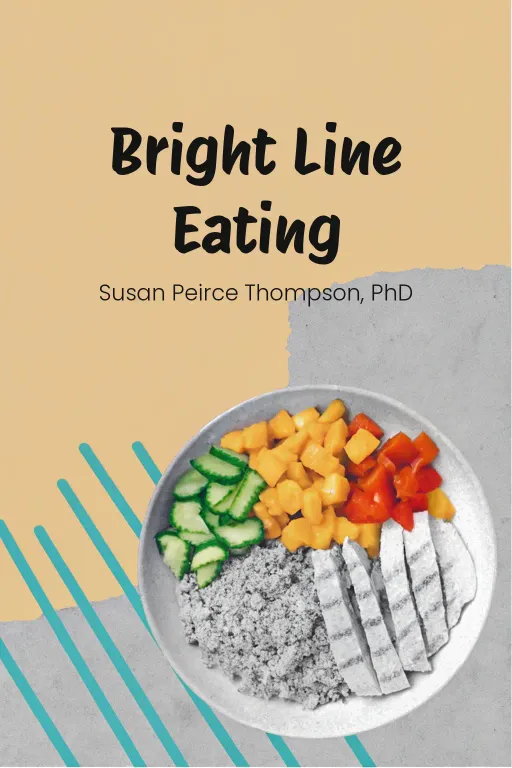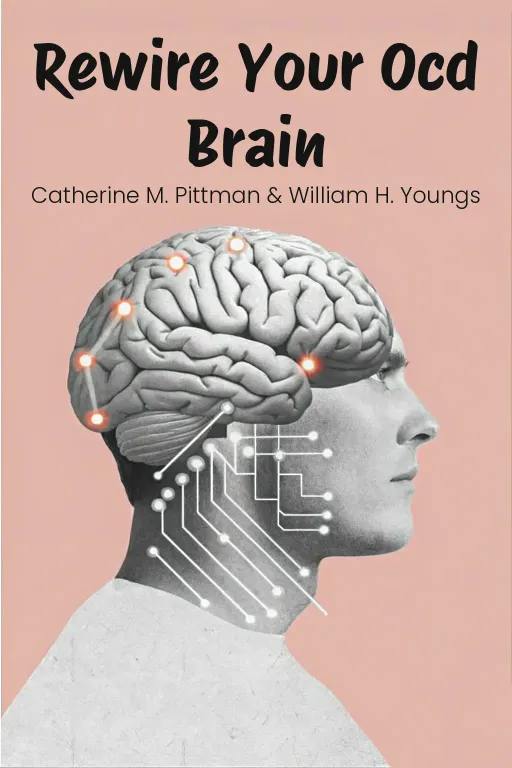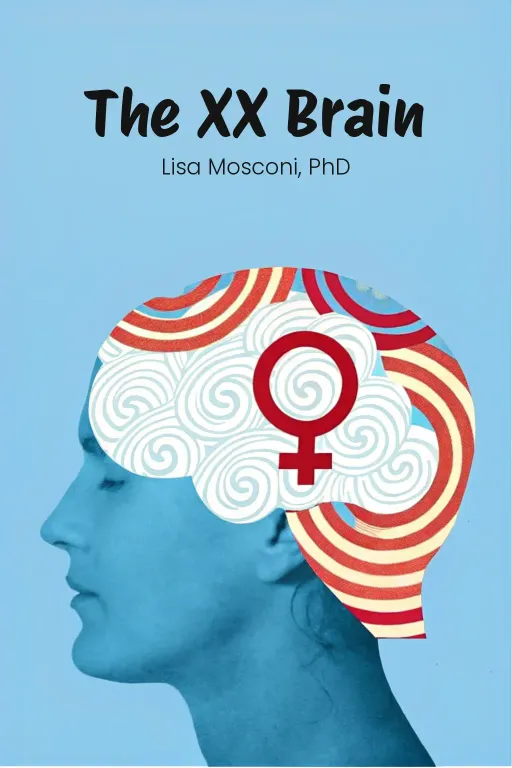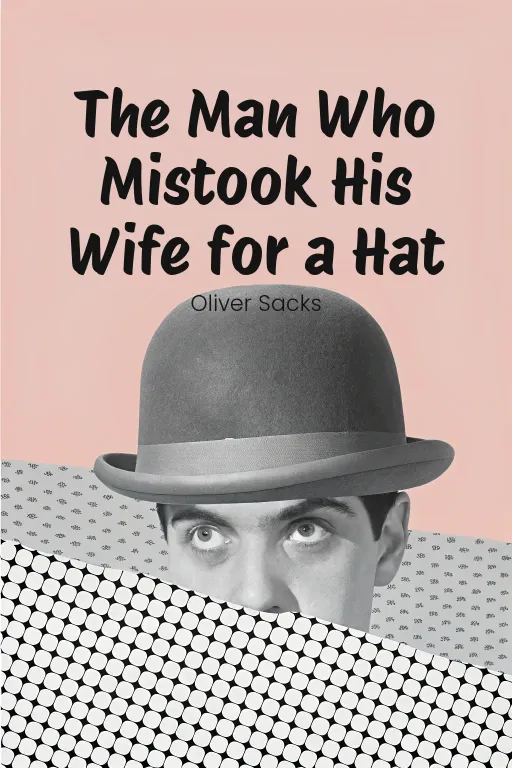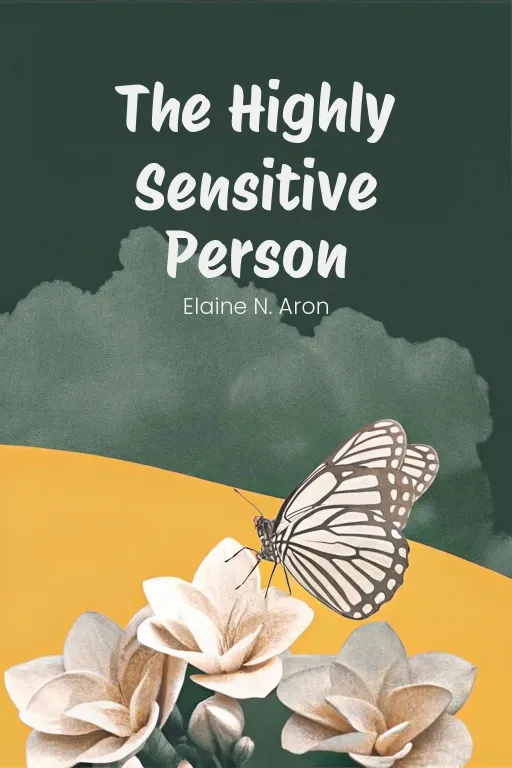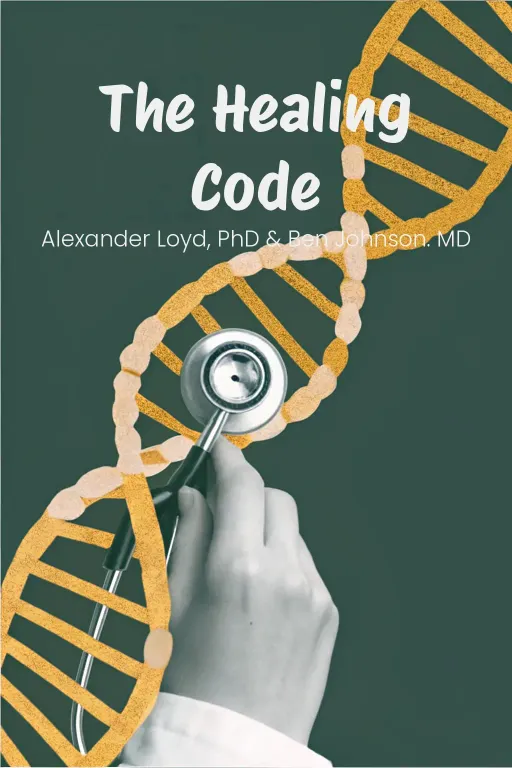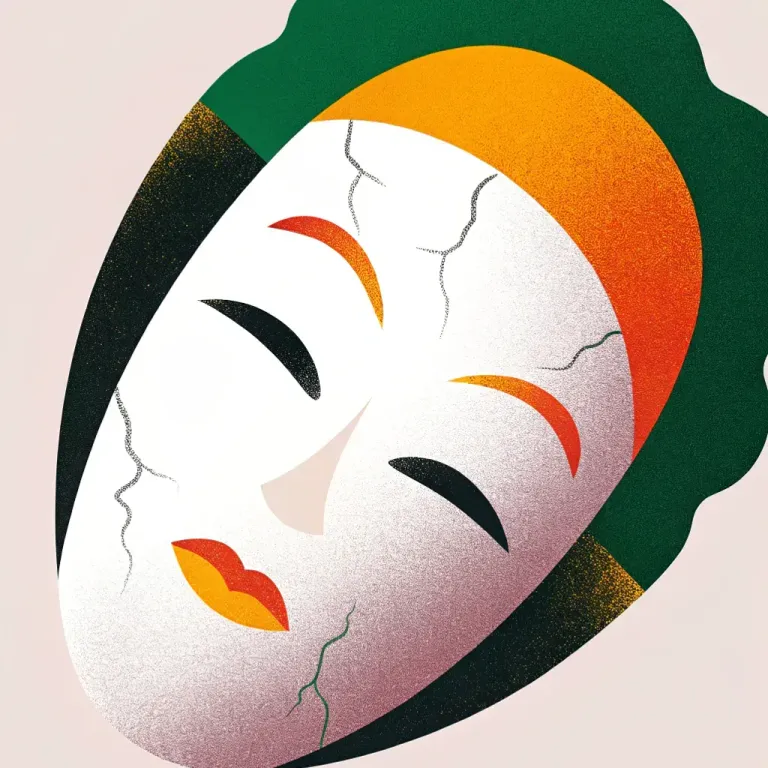
Is "Normal" Making You Sick?
Podcast by The Mindful Minute with Autumn and Rachel
Trauma, Illness and Healing in a Toxic Culture
Is "Normal" Making You Sick?
Part 1
Autumn: Hey everyone, welcome to the show! Today we're tackling something super fundamental: What does it even “mean” to be "normal"? And is aiming for "normal" actually… healthy? Rachel: Right? We toss that word around all the time, "normal stress," "normal life". .. But maybe "normal" itself is a big part of the issue, like a sneaky little bug in the system. Autumn: That's exactly the question Gabor Maté is asking in his book, The Myth of Normal. He makes a compelling case that a lot of what we consider "normal" – societal standards, cultural expectations, even aspects of our healthcare system – are actually toxic, and they're impacting our minds and bodies in ways we often don't even realize. Rachel: So, instead of a roadmap to happiness and health, "normal" is more like… a software with some serious flaws? Autumn: Precisely! Maté connects the rise in chronic illnesses, both mental and physical, to these larger systemic issues like inequality, disconnection, and rampant consumerism. It's not just individual struggles, but problems deeply rooted in our culture. Rachel: And he doesn't just point fingers. He brings together Indigenous wisdom, psychology, cutting-edge neuroscience – the whole shebang – to offer a more holistic vision of health. Autumn: Exactly. And today, we're diving into five key ideas from the book. First, how societal norms warp our understanding of true wellness. Second, the hidden but enormous impact of trauma on chronic illnesses. Rachel: Third, we'll explore how our modern culture, with its constant pressure and hyper-individualism, erodes our well-being. Autumn: Fourth, we’ll discuss practical steps for healing that Maté suggests – and spoiler alert, it's not about quick fixes or bio-hacks. And finally, his vision for a compassionate and connected world, where healing becomes a collective endeavor. Rachel: Sounds like a lot to unpack, but hey, if "normal" is the problem, maybe we need to get a little "abnormal" to find the solutions. Let's jump in!
The Myth of Normal
Part 2
Autumn: So, let's dive into the first big idea: how societal norms actually skew our understanding of what it means to be well. Maté doesn't pull any punches here. He basically says that what we consider "normal" in terms of health and daily life isn't just some neutral baseline. It's largely a product of a culture that values productivity and individualism above everything else, even genuine well-being. Rachel: Right, and that's where he starts challenging the status quo, like the idea that our health is solely our personal responsibility. You know, the whole "Eat better, exercise more, meditate" mantra, as if avoiding a heart attack is all on you. Autumn: Exactly! What Maté says is, "Hey, wait a minute, what if the problem isn't with the individual, but with the environment they're living in?" He kind of reframes chronic illness as less of an individual failing and more as a symptom of a dysfunctional system. I mean, think about stress, which our culture has practically turned into a lifestyle. High stress isn't questioned; it's almost celebrated as some kind of badge of honor that comes with success. Rachel: Yeah, that whole "I'm so busy" humblebrag. It's like we think our worth is directly related to how much we're juggling. And what does that actually get us? High blood pressure, insomnia, or maybe even an autoimmune disorder if we're lucky, right? Autumn: Unfortunately, that's probably more accurate than we'd like to admit. Maté points to data showing these huge spikes in chronic conditions like hypertension—especially among baby boomers—and how they're not just random. They're really linked to the kind of chronic stress that's baked into our work and social environments. This kind of stress can really wear down the body's defenses. Rachel: So, we've essentially created a culture that acts like a stress factory, and then we're surprised when people get sick. And he doesn't just focus on stress management, does he? He connects it back to trauma, which was a real eye-opener for me—seeing how normalized trauma contributes to this whole picture. Autumn: Absolutely, and he makes a compelling argument for the often overlooked role of trauma. And he's not just talking about the big, obvious traumas like abuse or violence. He really emphasizes these "micro-traumas"—those subtle, but cumulative experiences of feeling disconnected, rejected, or emotionally neglected. These experiences get stored in our nervous systems and can eventually show up as physical or mental health issues. Rachel: Okay, but let me play devil's advocate for a sec. This idea of trauma being an underlying cause… it's a powerful argument. But it feels… huge. I mean, how do you even begin to address something as ingrained as cultural neglect? Autumn: That's where his systemic approach comes into play. Maté believes you can't just treat trauma on an individual level while ignoring the broader context that keeps it going. It's like trying to clean up a polluted river without dealing with the factories that are dumping waste upstream. He's basically saying we have to heal both the individual and the system at the same time. Rachel: That makes sense. And it brings me back to his critique of cultural values, like this hyper-individualism. The idea that everyone's living in their own little bubble, responsible for all their own problems—doesn't that directly undermine the kind of connection that he says is so essential for healing trauma? Autumn: Exactly! Maté explains how we've normalized disconnection to the point that we barely even notice it anymore. He even uses that "fish and water" analogy—how the young fish doesn't even realize it's swimming in water because it's so all-encompassing. In the same way, we've kind of lost sight of how deeply our culture isolates us from our communities, and even from ourselves. Rachel: And this is where he throws down the gauntlet, right? He's challenging us to recognize that the "water" of modern life might actually be toxic. But here's the thing that's been nagging me: if disconnection is so deeply embedded in our daily lives, hidden behind what we call "normal," how do we even begin to spot it, let alone change it? Autumn: That's the million-dollar question. He says the first step is simply becoming aware—just realizing how much we've internalized societal standards that really don't support our well-being. Think about how we treat emotional vulnerability, for example. People often bottle up their feelings because they've been taught that showing emotion is a sign of weakness, and all that suppression can turn into physical symptoms. Rachel: Okay, but let me be skeptical for a moment, This whole awareness thing—it feels a bit… abstract. Recognizing that you're stuck in a toxic culture doesn't magically pay your bills or make those long hours at work disappear, right? How do you turn that awareness into real, meaningful change? Autumn: Great question, and Maté does provide some practical steps. While he advocates for systemic change in the long run, he also stresses the importance of creating these little pockets of connection and safety in the meantime. That could mean nurturing your close relationships, seeking out therapeutic practices like trauma-informed care, or even just allowing yourself to fully experience your emotions instead of pushing them down. Rachel: Got it. So, more "safe spaces," less "powering through the pain." I like that. Autumn: Exactly! And it's not just about avoiding harm—it's about actively fostering what he describes as "authenticity," you know, restoring that connection between who we really are and how we show up in the world? Authenticity, for Maté, isn't just some trendy buzzword—it's really central to our health. Rachel: Hmm. Okay, I see where you're headed. But even this authenticity idea can be tricky. What if someone's "authentic self" includes, I don't know, some not-so-healthy tendencies? Like they're authentically grumpy after two cups of coffee and six missed deadlines? Autumn: That's a really insightful point, and Maté actually addresses it. Authenticity doesn't mean giving in to every impulse or making excuses for harmful behavior. It's more about really tuning into your genuine needs and emotions, especially the ones you've been taught to ignore. And often, when you meet those real needs, you're actually less likely to fall into unhealthy patterns. Rachel: Makes sense. Still, trying to reclaim authenticity while still stuck in this toxic environment feels like a tough balancing act. I guess that's why he's pushing for a whole paradigm shift, not just personal transformation. Autumn: Right. It's a "both-and" approach. Addressing the issues with the system while also empowering individuals to take back their well-being. It's definitely a lot of work, but he's clear that if we don't do it, we're just going to keep repeating these cycles of sickness and disconnection that affect all of us.
Interconnectedness of Trauma and Health
Part 3
Autumn: So, by questioning what we consider 'normal,' we “really” open ourselves up to exploring what's behind many widespread health issues . And that leads us right into Gabor Maté’s core idea: the deep connection between trauma and our health . It builds on that idea that we've kind of twisted our understanding of wellness, and it digs deeper into how our personal lives and broader cultural forces are linked . Rachel: Right, and this is where Maté starts connecting the dots in a way that totally challenges how we think about chronic illnesses . He’s saying it’s not just about, you know, viruses or bad genes—it’s about individual trauma, the stress we’re carrying, and how the world around us shapes that stress . Autumn: Exactly . According to Maté, trauma isn’t just about those big, dramatic events we often think of . It’s anything that overwhelms our coping mechanisms and leaves us with lasting emotional or physical scars . And here’s the fascinating—and somewhat unsettling—part: this unresolved trauma can actually embed itself in our bodies, altering our immune function, our hormonal systems, even our brain chemistry . Rachel: That’s a pretty big claim . I mean, how do you go from, say, a childhood heartbreak or a feeling of neglect all the way to developing an autoimmune disease ? Are we just blaming stress for everything here ? Autumn: Not at all . There’s a growing body of research in psychoneuroimmunology . It's a field that studies how psychological stress impacts the immune system . Chronic stress, often rooted in this unresolved trauma, leads to a constant activation of stress hormones, like cortisol . And over time, what starts as a protective response shifts and becomes destructive and it starts attacking the very systems that are supposed to keep us healthy . Rachel: So, it’s like your body's rewiring itself for survival, but that new wiring comes with some pretty serious side effects, huh ? Autumn: Exactly . And Maté emphasizes that this survival mode isn’t just psychological—it’s physiological . The immune system becomes dysregulated . It either overreacts, leading to inflammation and autoimmune disorders, or it underreacts, making us vulnerable to infections and other conditions . He’s essentially reframing diseases, like rheumatoid arthritis or even cardiovascular conditions, as biological echoes of trauma . Rachel: That makes me think of the ACE study—Adverse Childhood Experiences—because that's where I first saw these kinds of connections laid out with actual numbers . The idea that a quiz about childhood adversity could predict everything from depression to diabetes later in life is… Well, it's staggering . It almost sounds like science fiction, but it's real . Autumn: Absolutely . The ACE study is “really” a cornerstone for understanding this connection . It identified ten categories of childhood trauma, everything from emotional neglect to witnessing violence . And the results were startling: individuals with higher ACE scores were not only more likely to develop chronic illnesses but also had shorter life expectancies . It’s a clear indication that the body remembers—trauma leaves a physical mark . Rachel: And this isn’t just abstract data, right ? There are actual lives behind these correlations . Like Theoren Fleury, the hockey player Maté talks about . His story is just heartbreaking . Autumn: It “really” is . As a child, Fleury was sexually abused by a trusted coach . He also dealt with parental neglect linked to his father's alcoholism . And while he achieved great success in his career, his untreated trauma eventually showed up as addiction, mental health struggles, and troubled relationships . His case is a powerful example of how unresolved emotional pain can impact a person's entire life, well beyond the initial trauma . Rachel: It’s like his achievements were this shield—that “everything’s fine” story we tell ourselves—but the cracks in the armor were there all along . Autumn: That's exactly what Maté talks about . Trauma doesn’t just disappear . Even when it’s buried it quietly shapes how we think, how we behave, and even how our cells function . And Fleury’s story is just one example . This plays out across so many lives, from the single parent constantly stressed from long hours, to someone facing systemic inequalities that worsen their struggles . Rachel: Speaking of systemic issues, I think Maté’s focus on inequalities adds another layer to this whole trauma-health connection . It’s not just about personal struggles, but also about the societal structures that amplify stress . You know, like marginalized communities dealing with racism or poverty—it just multiplies the stress . Autumn: Exactly . Systemic trauma compounds everything . Take the experience of Black women in the United States—Maté points out how they experience disproportionately high rates of health issues, like hypertension . And it's not about genetics or individual choices . It’s the constant stress from navigating intersecting oppressions of racism and sexism and that takes a measurable toll on their bodies . Rachel: It’s horrifying, but it is illuminating . It shows that health disparities aren’t just about unequal access to healthcare—they’re built into the lived experiences of certain communities . Chronic stress isn’t just a personal problem; it’s “truly” a public health crisis . Autumn: And that's where Maté's concept of systemic dysfunction “really” hits home . It shifts the focus from "Why is this person sick?" to "What societal factors made them vulnerable in the first place ?" Understanding this interconnected view means recognizing that we can't solve health issues without addressing the toxic environments that people are stuck in . Rachel: These toxic environments that, like he says, we’ve normalized . I keep thinking about his metaphor of fish swimming in polluted waters—it's a subtle reminder that the damage isn’t visible until we step back and question what's normal around us . Autumn: And part of that is recognizing how even subtle forms of trauma show up—not just as health conditions but as emotional patterns . Maté shares an example from his own life, where a seemingly minor incident of his wife’s delayed message triggered old feelings of neglect from childhood . Things we often think of as small irritations can actually uncover those deeper, unresolved wounds . Rachel: So, trauma is like a landmine, huh ? You don’t even know it’s there until something sets it off . A delayed text, a casual comment, and suddenly the past floods your present . Autumn: Exactly, and that’s why awareness is so important . Maté says the key step towards healing is identifying these patterns, not just personally, but in the greater systems and norms we operate within . Only then can we begin to repair the damage that's been done . Rachel: And it all comes back to compassion, doesn’t it ? Compassion for yourself, to face and deal with trauma, but also compassion on a systemic level—to create structures that don’t keep perpetuating disconnection and inequality . Autumn: Right . If we can start seeing trauma as the root of so much distress, individually and collectively, it opens a path for healing that isn’t about blame, but about understanding and fostering real change .
Toxic Culture and Societal Disconnection
Part 4
Autumn: Okay, so recognizing trauma as a root cause... leads us to digging into how our societal systems perpetuate these cycles. And that brings us to another layer of Maté’s argument, which is how our cultural values, like materialism and individualism, really amplify the toxicity. So, how do these forces worsen disconnection and health issues on a systemic level? Rachel: Right, how do we zoom out, I guess? Autumn: Maté frames it brilliantly. Modern society conditions us to prioritize material success, competition, and independence over deeper human needs like connection, emotional safety, and authenticity. And by doing that, we're essentially dislocating people from the very things that are essential for health and well-being. Rachel: Dislocation—I like that. It’s almost like as a society, we've dislocated ourselves, like a shoulder that's out of its socket. It functions but you're just in constant pain. And I think Bruce Alexander’s metaphor that Maté uses really drives this home, this experience of being perpetually out of place. It's not just metaphorical, is it? Autumn: No, it's literal in the sense that disconnection from ourselves, each other, and the natural world has biological consequences. When Maté talks about dislocation, he's highlighting this constant undercurrent of stress and isolation that wears us down, both physically and emotionally. He pairs this with data on loneliness, which has reached epidemic proportions in modern societies. Rachel: And loneliness isn’t just being bummed out. We’ve talked about this before, but that 40% of Americans identifying as "lonely" statistic—it’s one thing to read. But the fact that loneliness has been linked to actual health risks, like, I don’t know, being worse than smoking 15 cigarettes a day—that's kind of shocking, right? Autumn: It’s staggering, but it makes sense. Loneliness triggers a stress response in the body. Prolonged stress leads to immune system dysfunction, cardiovascular strain, even higher mortality rates. And the pandemic underscored this. All that isolation and disconnection people felt during COVID led to skyrocketing rates of anxiety and depression because it highlighted just how fragile and fractured our social networks had become. Rachel: It seems like hyper-individualism and this cultural obsession with "going it alone" plays directly into this. I mean, we've normalized this belief that reliance on others is weakness, which is totally backwards. Humans literally evolved to be social. Evolution didn't equip us to thrive in silos. Autumn: Precisely. All those individualized success metrics we're fed—wealth, status, accumulation—they actually work as barriers to connection. And that isolation is compounded by structural inequalities. Maté talks extensively about how economic disparities amplify stress and harm health, especially for marginalized groups. Rachel: So, if you’re born into poverty, or if you’re part of a group discriminated against by the system, you've got this extra layer of stress that those at the top don't experience. And it's not just psychological stress, it's physical. It translates into biology. Autumn: Exactly. One stark example Maté highlights is the intersection of income inequality and life expectancy. He points out that in the U.S., for instance, individuals in wealthy neighborhoods experience significantly better health outcomes, and longer lives, compared to lower-income groups. He especially focuses on Black women, who often face compounded stressors from both racial discrimination and socioeconomic pressures. Rachel: And it’s not just some vague correlation. The chronic stress from these systemic injustices changes cortisol levels, causes inflammation, triggers illnesses like hypertension or diabetes. It’s like oppression writes itself into your genetic code almost. Autumn: It’s really striking, and heartbreaking, when you realize that these health disparities aren’t accidents. They’re consequences of societal systems that prioritize capital over care, competition over compassion. And here’s where Maté goes one step further: he critiques consumerism itself as a way these disconnections are reinforced daily. Rachel: Consumerism—the shiny, dopamine-inducing Band-Aid we slap over the gaping wound of disconnection. Feeling sad? Buy something! Lonely? Here’s an app to deliver temporary validation. It's like retail therapy on steroids. Autumn: Exactly. Consumer culture feeds us this lie that happiness can be purchased, that our sense of worth is tied to consumption. But what it really fosters is emotional deprivation. Maté discusses how even kids are reshaped by this—how screens and devices have replaced attuned interactions with caregivers. The result? Kids grow up feeling unseen, emotionally neglected, and more prone to disorders like anxiety or ADHD. Rachel: Right, and that emotional neglect carries over into adulthood. We’re so conditioned by these shallow reinforcements that we don’t even realize how disconnected we’ve become from others, and from ourselves. And speaking of disconnection, Maté points out something I hadn’t thought enough about: how this burden is gendered. Autumn: Yes, his analysis of how women often act as society’s “shock absorbers” is incredibly compelling. From a young age, women are socialized to prioritize others’ needs above their own. Sacrificing personal authenticity for harmony becomes almost second nature. And over time, this emotional labor leaves them more susceptible to health issues, autoimmune disorders in particular. Rachel: Right... which reinforces the toxicity of the system. Women end up absorbing the anxiety and dysfunction of those around them and then pay for it with their own health. That whole Liz example he gives, juggling firefighting, family obligations, and unresolved childhood trauma, it’s such a vivid illustration of this. Autumn: And it’s not just Liz—it’s emblematic of countless women’s lives. They’re expected to fulfill so many roles, often at immense personal cost, with little systemic support. And the key here is Maté’s emphasis on breaking this cycle – not just for individual women, but by transforming societal structures that demand so much while offering so little in return. Rachel: That’s the crux, isn’t it? If we’re swimming in toxic waters, the goal isn’t just to become stronger swimmers; it’s to clean the water. And Maté’s call to action feels clear: we have to rebuild connection, repair community, and shift away from cultural values that prioritize profit and productivity over people.
Pathways to Wholeness
Part 5
Autumn: Understanding these toxic cultural forces really pushes us to think about how we can heal and change society. That leads us to “Pathways to Wholeness,” where Maté offers both philosophical and practical solutions for restoring health, for ourselves and for everyone. Rachel: So, this section is less about pointing out the problems and more about asking, "Okay, what can we actually do about it?" I appreciate that Maté doesn't just offer empty words. He creates this connected idea where fixing ourselves goes hand-in-hand with fixing what's wrong with our culture. It’s like figuring out a complicated puzzle, you know? Autumn: Absolutely. And at the center of this idea are three pathways: mindfulness, authenticity, and community support. They deal with the emotional and widespread reasons why we're disconnected, while also giving us ways to both heal ourselves and rebuild the bonds we have with each other. Let's start with mindfulness, because it bridges awareness and healing. Rachel: Okay, mindfulness...it's everywhere these days. You hear about it in yoga, at work events, even on parenting podcasts. But what's Maté's view? How is it more than just downloading a meditation app? Autumn: For Maté, mindfulness isn't just a trendy way to take care of yourself. It's more about changing how you see the present moment. It’s about creating a space where you can watch your feelings, thoughts, and body without judging them. This helps you step away from reactions that come from stress or past trauma. And in that space, healing can actually start. Rachel: Right, and he uses the example of a man with ongoing pain who tried observing mindfully. Instead of fighting the pain or trying to ignore it, he started looking at it like he was a scientist. “What is this pain trying to tell me?” Changing how he saw it didn't make the pain go away, but it stopped him from fighting against his own body. Autumn: Exactly. The man’s experience shows how powerful mindfulness can be. It’s not a quick fix, but it changes how we deal with discomfort, whether it's physical or emotional. Maté believes that pain itself isn’t always the bad guy. Often, it's the emotions we've pushed down that need to be recognized. Rachel: And the amazing thing is, science agrees with this. Who would have thought that paying attention to pain could lower your blood pressure or reduce inflammation? The field of psychoneuroimmunology is incredible. It shows that mindfulness can actually change how your body reacts to stress. Autumn: It really does. Studies consistently show that mindfulness does more than just reduce anxiety or make you feel better. It actually affects your immune system and helps you become more resilient. It’s a tool that helps us take control of our lives, even when things are “really” tough. Rachel: But here's what I'm wondering: mindfulness sounds great, but we live in a culture where we're always rushing. How realistic is this for someone who has no time, who's trying to balance work, raising kids, and just dealing with life? Autumn: That’s a fair point, and Maté doesn’t pretend it’s simple. But he says that even small moments of mindfulness can make big changes. It’s not about meditating for hours. It could be as simple as pausing to take a few breaths when you're stressed, or just naming what you’re feeling instead of pushing it down. Even these small pauses in our usual reactions can start to build awareness. Rachel: It's like you're slowing down time, breaking through the autopilot to really see how your body and mind are reacting. Which brings us to his next pathway: authenticity. I see mindfulness as watching yourself, but authenticity seems like it takes that inner work and shows it in your actions, right? Autumn: Exactly. Authenticity is about making your actions match your inner beliefs. But for many people, especially in a society that focuses on roles and fitting in, it’s easy to lose sight of who you really are. Maté sees this mismatch as a big source of stress that slowly harms our health. Rachel: I can imagine people hearing this and thinking, "Be authentic—great advice, but how do I actually do that?" You can't just suddenly undo years of being conditioned to act a certain way. How does Maté suggest people start getting back in touch with their true selves? Autumn: He talks about a woman named Julia, who struggled with rheumatoid arthritis. For years, she put her own needs last, after what society and her family expected of her. When she got sick and had to slow down, she started listening to her body, her emotions, her hidden grief and anger. Maté describes how, by consciously staying with her pain and facing those buried feelings, she started to understand herself better and even felt physical relief. Rachel: So, in a way, her illness became her teacher. It’s interesting, but also...challenging. Let's be real—leaning into pain, whether it's physical or emotional, sounds terrifying to most of us, doesn't it? Autumn: Definitely, and that’s why feeling safe, both inside and out, is so important. Maté emphasizes that authenticity doesn’t mean just acting out every feeling without thinking. It’s about creating space to see what really matters to you, what you need in your relationships, and what boundaries can help you take care of yourself. Rachel: And that can have a huge impact. Because when you think about it, we’re not just dealing with our own disconnection. We’re often stuck in situations – at work, in our families – where we’re expected to hide who we are to keep the peace. How do you stay true to yourself when the world around you resists it? Autumn: That’s where community support comes in. Maté argues that healing ourselves works best in environments where there is trust, connection, and care for each other. It’s not just about “fixing” yourself. It’s about creating networks where being real and vulnerable is encouraged, where we show each other our shared humanity. Rachel: And he doesn’t just mean hanging out with friends to complain about your boss, right? He’s talking about a much deeper connection, like what he experienced with the Shipibo shamans in Peru. Those ceremonies broke down his defenses and showed him how personal healing is tied to healing together. Autumn: Exactly. The Shipibo example is powerful because it shows how Indigenous practices often represent the interconnectedness of life that Western cultures tend to ignore. For Maté, this wasn’t about copying another culture. It was about learning from a worldview that sees community and nature as essential for health. Rachel: And I appreciate that this isn’t just theoretical. Grassroots movements, support networks – those are the modern examples he points out. Real-world examples of people joining together to say, "Your struggle is my struggle." It’s a rejection of the idea that we’re all on our own. Autumn: Right. These community efforts create what a toxic culture fails to provide: spaces where people feel seen, supported, and safe enough to explore their pain and begin healing. Maté’s whole idea comes back to recognition: that suffering isn’t something you do alone or because you’re a bad person. It is tied to the systems we live in. Rachel: Okay, you’ve convinced me. Mindfulness, authenticity, community support—these pathways sound promising, but still, I wonder: are these tools enough to “really” make a difference when the system we live in – with capitalism, inequality, and consumerism – is actively working against them? Autumn: That tension is at the heart of Maté’s idea. Personal pathways are important, but they’re not complete unless they’re combined with changes to the system. He’s clear that healing requires a societal shift, a shared commitment to values like connection and compassion. Rachel: So I guess that’s the tricky part, right? You can’t wait for the system to change before you start healing yourself, but your own healing isn’t enough unless it helps to change the system too. Autumn: Exactly. It's a cycle: personal change fuels collective healing, and collective healing helps us to grow as individuals. That’s how we move toward wholeness as a society.
Vision for a Saner Society
Part 6
Autumn: Okay, so we've looked at individual healing, and now we're zooming out, right? To see how it all affects society. Maté has this "Blueprint for a Saner Society," which is all about going beyond personal stuff – mindfulness, being real – and rethinking the kind of world we actually want to live in. Rachel: Right, it's about the bigger picture. This all sounds great in theory, but "wholeness" and "societal compassion"? They can sound a bit abstract, can't they? What does Maté actually mean when he says the way things are now isn't working and needs to be changed? Autumn: Well, he’s saying that what we normally use to measure health and progress – GDP, productivity, how much stuff people own – those things put making stuff over actually being well. They don’t really care about our emotional or social needs, which are super important for our health. So, he wants us to use this biopsychosocial model instead, where your physical health is all mixed up with your emotions, your social life, and where you live. Rachel: I see, so it's like we've separated things into boxes that don't really exist. Health isn’t separate from what’s happening in the world, or the economy. But I guess some listeners might be thinking, "Okay, that's true, but what can we actually do with that information? I mean, how do you “do” compassion?" Autumn: Maté says we need to make big changes to the system, so that things like healthcare, schools, and the legal system understand trauma. That's trauma-informed care. It’s so important because if you don't deal with trauma, it affects how people act, the choices they make, and even unfairness in society. Rachel: So when someone is struggling, instead of asking, "What's wrong with you?", you ask, "What happened to you?" Autumn: Exactly! And it’s working in some places. Some schools have stopped punishing kids by suspending them and are trying something called restorative justice. Instead of kicking kids out, teachers try to understand why they're acting that way – maybe they have problems at home, maybe they're being bullied, maybe they’re poor. Then they help them become stronger, instead of making them feel ashamed. Rachel: That's a huge change though, right? It's like turning around this culture of punishment we've had for so long – those “zero tolerance” rules in schools, or the whole way the justice system works. Does Maté talk about changing healthcare too, by bringing trauma into it? Autumn: Yeah. He says healthcare today is too focused on just the body. Doctors look at the symptoms but ignore the emotional and social reasons behind them. Like, a Black woman with high blood pressure might get medicine, but no one asks about the stress she feels every day because of racism and money problems. Rachel: And that's not just a made-up example. The numbers show it. Black women in the U.S. are way more likely to die during childbirth, and it's not about genes. It's about inequality, plain and simple. Autumn: Right, so to fix that, we don’t just need to make healthcare more available. We need to change how healthcare understands a patient’s whole life. Maté wants us to use integrative approaches. That means mixing regular medicine with emotional support, social connections, and help from the community. Rachel: Here’s the tricky part. Systemic reform. Restorative justice in schools, trauma-informed healthcare, dismantling structural inequality—it all sounds so daunting. How do you make that feel achievable when people are just trying to get through their own day? Autumn: That’s where Maté says working together is so important. This isn’t something one person can fix on their own. He talks about little movements happening on the ground – local groups working on healthcare, education, and community support. These smaller things, like helping each other out or trauma-informed clinics, show that change can start even if you don't have much. Rachel: So instead of trying to fix the whole system at once, it's like planting seeds – little local things that can grow and inspire bigger changes. And those seeds are all about compassion, which is another big part of Maté’s idea. Autumn: Exactly! He says compassion isn’t just about how you treat people, it’s about how society is set up. He criticizes Western cultures for being obsessed with being independent and hiding your emotions. That makes people feel disconnected and ashamed when they’re vulnerable. Instead, he wants systems where people can be honest about their feelings and needs without feeling ashamed. Rachel: That brings me to the idea of emotional truth. He talks about Julia, who had rheumatoid arthritis, and how her health improved when she started being true to herself. Can you take that idea, being true to yourself, and apply it to a whole society? What does it mean for a healthcare system, or a government, or a workplace to be "authentic"? Autumn: That’s a great question. For Maté, when a society is authentic, it's transparent, empathetic, and focused on people's needs. So a trauma-informed legal system would focus less on punishment and more on helping people become whole again. Workplaces would be flexible, care about their employees' emotions, and help them balance work and life, instead of acting like your value as a person depends on how much you produce. Rachel: But these are huge shifts though. We're talking about redefining what “success” even means. Maté’s suggesting we ditch things like GDP and focus on connection, well-being, and protecting the environment. Are we even ready for that kind of reset? Autumn: If we don’t, things will only get worse. Maté says that the way we're chasing after money and stuff not only makes us feel disconnected, but it also hurts the environment. He says our well-being depends on realizing that we all depend on each other and on the planet. There are movements that connect social justice with sustainability, that help people see it. Rachel: That ties back to how crises can be opportunities for change, doesn’t it? Maté ends on a hopeful note – that the problems we have now are exactly where we can find solutions. If we realize that suffering isn’t just something that happens, but it’s a sign that something is wrong with society, then we can use these crises as a chance to rebuild. Autumn: Exactly. He sees crises as chances to start over. But we have to agree, as a group, that we need to fix the real causes of our suffering and put fairness, compassion, and empathy first. That’s how we can make "normal" mean something that supports our health, our connections, and our collective healing.
Conclusion
Part 7
Autumn: Okay, so let's bring this home. Today, we dove deep; Gabor Maté's “The Myth of Normal” really challenges our fundamental beliefs about health, well-being, and even the culture we're immersed in, right? Rachel: Exactly. He basically argues that chronic illnesses, both physical and mental, aren't just personal issues, but more like symptoms of a system-wide dysfunction. Trauma, disconnection, and these toxic cultural values are, like, woven into the very definition of what we call 'normal.' Autumn: And while it does sound a bit grim, it's not a message of despair. Maté gives us hope. He suggests that through mindfulness, authenticity, and building genuine communities, we can reconnect with ourselves, with each other, and even reshape these systems we live within. Rachel: Right, so it’s a call to, like, break free from the toxic norms we're all just sleepwalking through, and actively question the very definition of progress, health, and success? Things that seem pretty set. Autumn: Yes. Whether it's revolutionizing how education or healthcare works, or just making room for compassion and self-awareness every day, it's about choosing healing as a collective rather than just individual suffering. Rachel: Alright, Autumn, so the takeaway is this: What if our unease and sense of disconnection isn't just a you problem, but more like a warning sign? Maybe "normal" as we know it is fundamentally broken, and recognizing that is the first step toward fixing it? Autumn: Oh, that's a really powerful question. What could healing look like – not just for you as an individual, but for all the communities and systems you're part of? Rachel: Food for thought. Thanks for joining us today, and, you know, keep questioning what 'normal' really means. We'll catch you next time.


